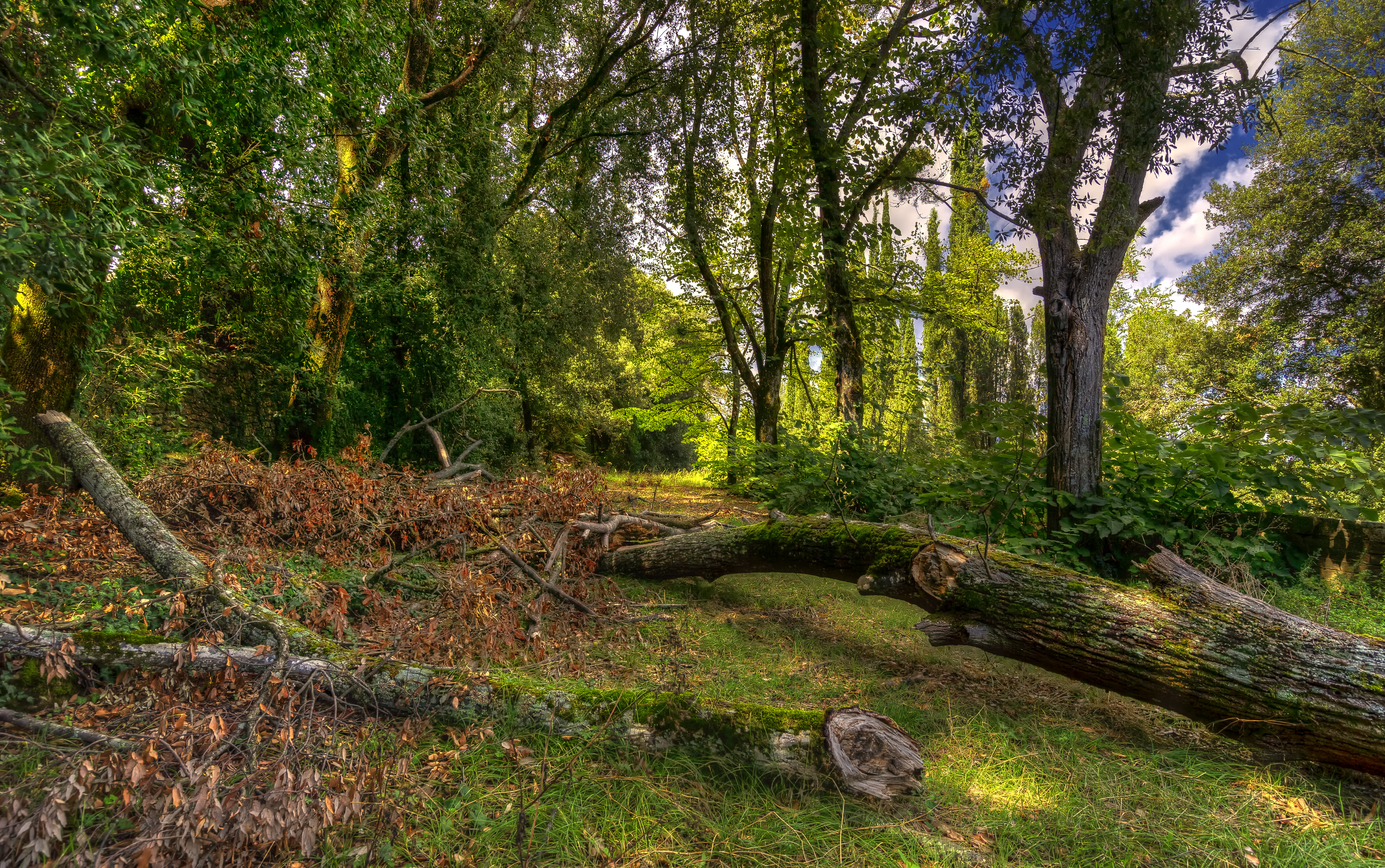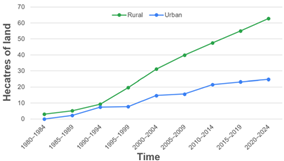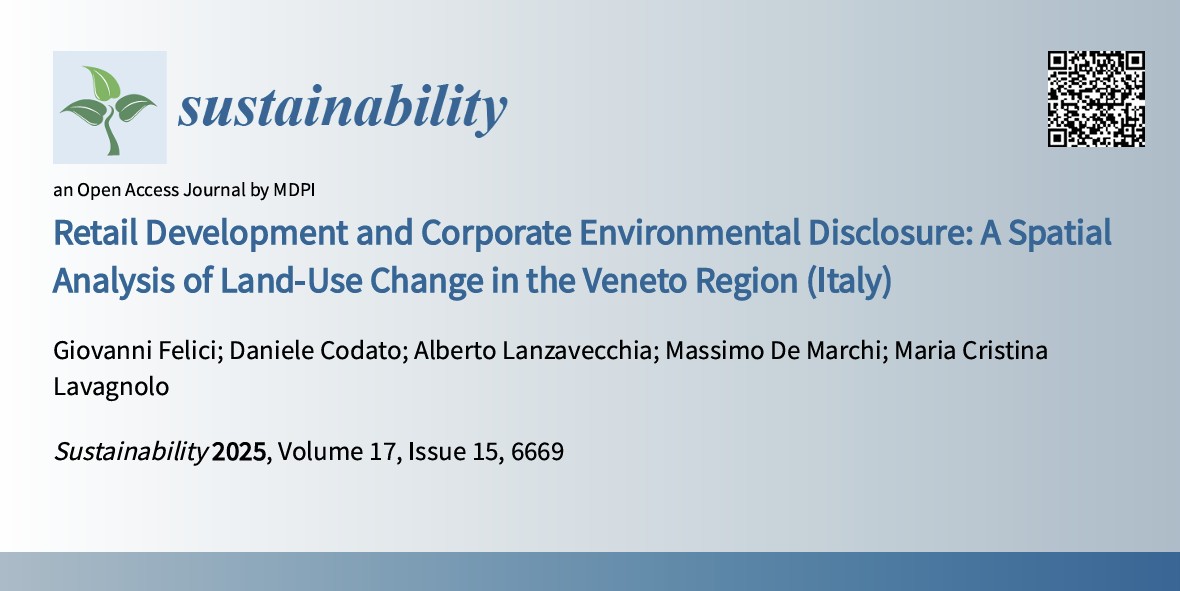Corporate Environmental Disclosure: When “We Love Nature” Overlooks Land Consumption and the Resulting Ecological and Social Damage

Large supermarket chains are frequently the protagonists of “green” marketing campaigns, portraying themselves as leaders in combating climate change and biodiversity loss. Energy efficiency, waste reduction, and sustainable packaging are some of the recurring themes in their environmental communications. However, a recent study conducted by a research group at the University of Padua, within the framework of the PNRR–National Biodiversity Centre and the Centre of Excellence for Climate Justice, and published in Sustainability, sheds light on a crucial yet often overlooked environmental aspect: the impact of their expansion on land consumption and the resulting destruction of vital ecosystem services.
Researchers analysed the case of Alì S.p.A., one of the leading supermarket chains in Veneto, focusing on the conversion of agricultural and natural land into built-up areas to accommodate the company’s growing number of stores in the region. Through geospatial analysis and satellite image interpretation, the study revealed that as much as 65.97% of the total area occupied by new Alì supermarkets between 1983 and 2024 resulted from the conversion of rural land, largely comprising agricultural zones and valuable semi-natural grasslands (Figure 1).

The transformation of these areas into artificial surfaces entails the loss of fundamental ecosystem services provided freely by nature, such as rainwater filtration and storage, carbon sequestration, and the mitigation of temperature and air pollution. These consequences negatively affect the entire ecosystem and human quality of life, particularly in urban areas and especially for vulnerable groups (children, older adults, and people at risk of poverty).
Land consumption is a pressing issue in Veneto, the second most urbanised Italian region, with 11.86% of its territory covered by sealed surfaces, largely due to the logistics and retail sectors. Yet this critical issue appears to be completely absent from the sustainability policies and non-financial disclosures of many companies in the sector, whose profit growth is driven by land take.
In its annual sustainability report, Alì highlights topics such as energy efficiency, waste reduction, and supply chain improvement, but makes no mention of the impact of its expansion on land consumption. Instead, it actively promotes an initiative called “We Love Nature”, which, according to corporate claims, has led to the conversion of 23.5 hectares of land into new green areas and the planting of 52,729 trees.

But is this truly the case? Textual and geospatial analysis by the researchers uncovered that these claims do not reflect reality. The “We Love Nature” initiative operates through a loyalty programme: every time registered customers make a purchase, they earn one credit for every euro spent (above €5.00), which they can redeem for goods or services listed in the extensive rewards catalogue, including the planting of one tree for every 2,000 credits donated cumulatively by one or more customers. However, the trees are not planted by the company itself but by customers who opt to allocate their credits for this purpose. Moreover, satellite images show that the trees were planted in areas already classified as public green spaces or natural areas, without any real conversion of urban land back to rural land to offset Alì’s commercial expansion.
Finally, the analysis revealed that the average distance between the tree-planting sites and the new supermarkets built on agricultural or natural land is as much as 40 km, casting doubt on the compensatory logic of the initiative about the localised impact of land sealing. Planting trees tens of kilometres away can hardly compensate for the loss of biodiversity and ecosystem services caused by the conversion of green areas into new commercial facilities.
The study underscores that sustainability cannot be reduced to a partial narrative centred on selected positive aspects but requires a holistic approach that considers all relevant environmental impacts, both positive and negative. Only by adopting such a comprehensive perspective and promoting genuinely sustainable practices can companies play an active role in addressing the global challenges of climate change and biodiversity loss, avoiding greenwashing practices that undermine their credibility and delay the implementation of truly eco-compatible solutions.
In this regard, the authors recommend that, instead of building on undeveloped land, companies should prioritise the regeneration of urbanised areas or disused industrial sites, redeveloping and repurposing them for new commercial uses without further land take. A virtuous approach that Alì is pursuing with the project in the former Grosoli area in the Padua province, where it plans to construct a new supermarket alongside residential units, a public park, and cycle paths, thus redeveloping a disused industrial site.
In conclusion, greater transparency and the inclusion of land consumption data in corporate sustainability reports would be key steps towards raising awareness of this critical issue and enabling effective monitoring of the environmental impacts of economic activities, thereby promoting truly sustainable choices.
Further reading:
Felici G., Codato D., Lanzavecchia A., De Marchi M., Lavagnolo M.C. (2025). Retail Development and Corporate Environmental Disclosure: A Spatial Analysis of Land-Use Change in the Veneto Region (Italy).

